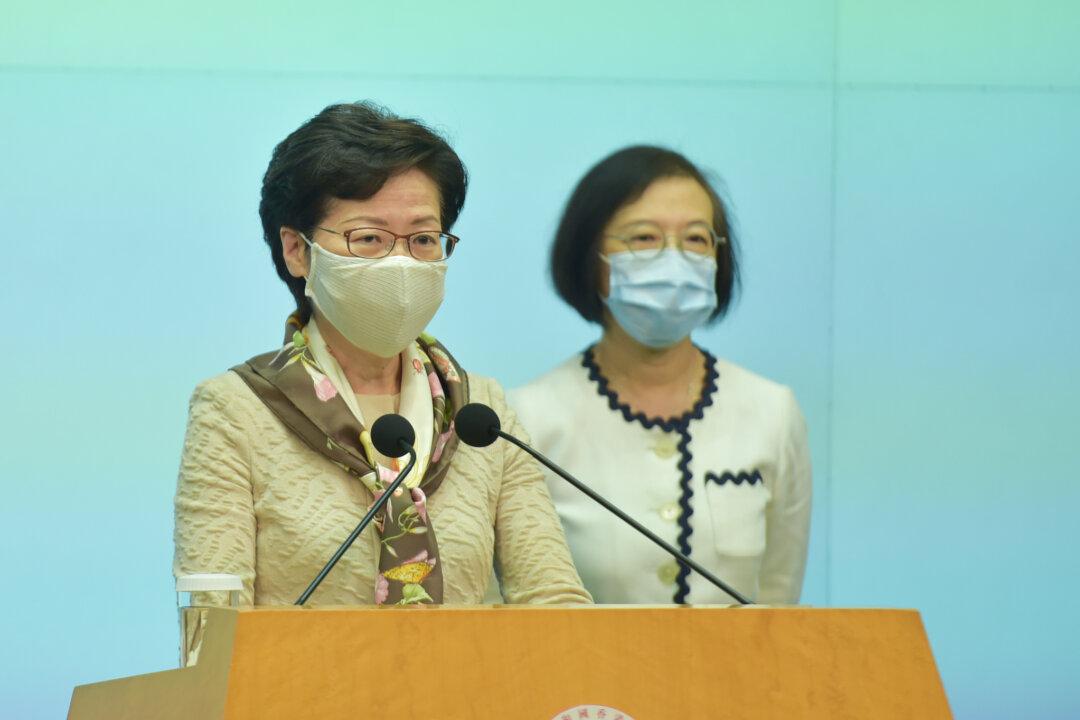Hong Kong leader Carrie Lam defended Beijing’s decision to implement a so-called national security law in the city, while accusing Washington of using double standards to criticize the law in her weekly press conference on June 2.
Tuesday marked Lam’s first public appearance since U.S. President Donald Trump announced on May 29 that it will curtail ties with Hong Kong, adopting measures, such as revoking the city’s preferential trade treatment under U.S. law. Beijing passed its national security law for Hong Kong a day earlier.





